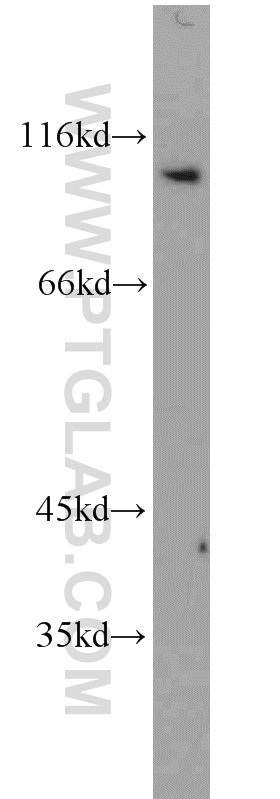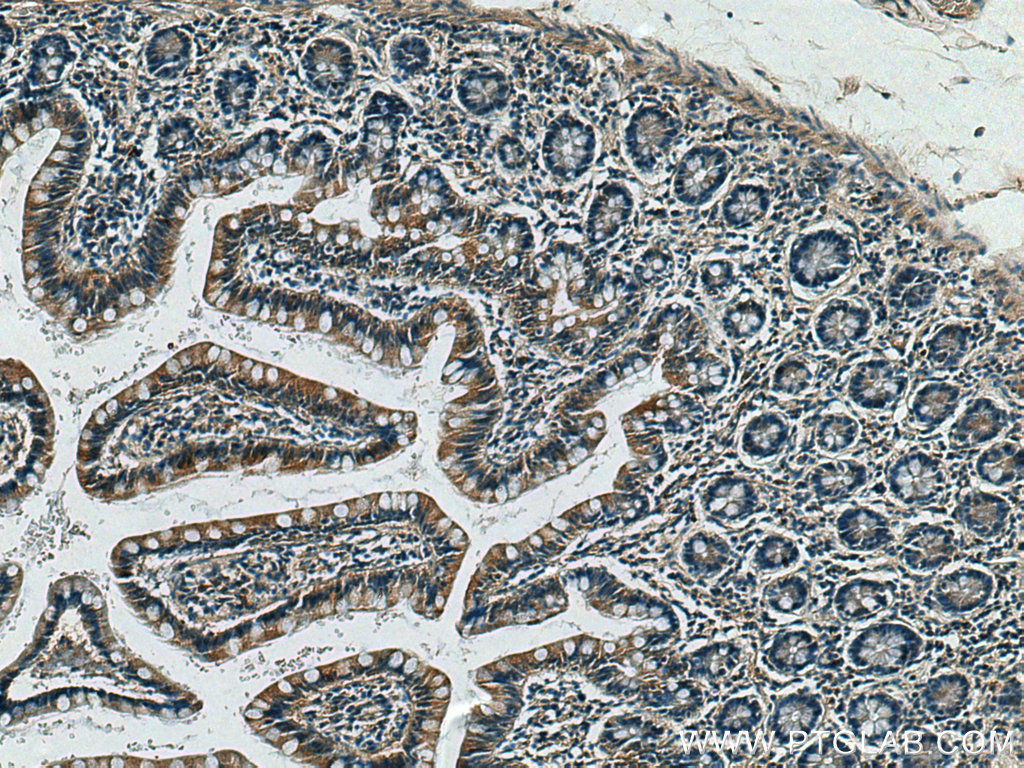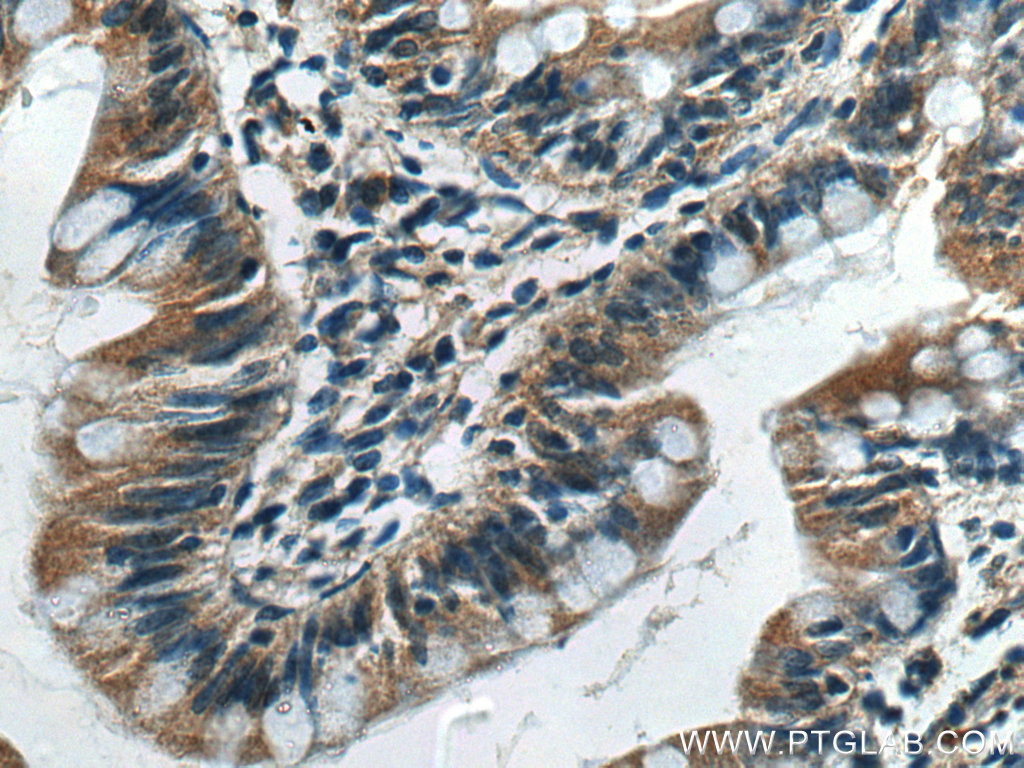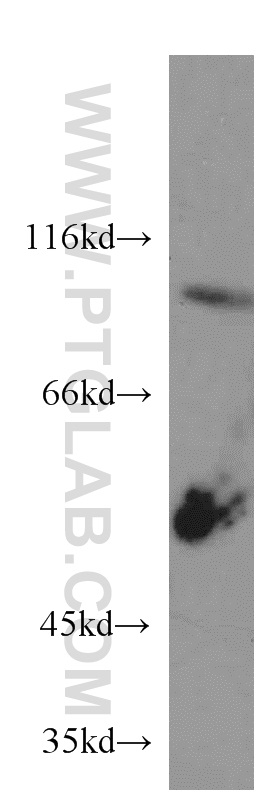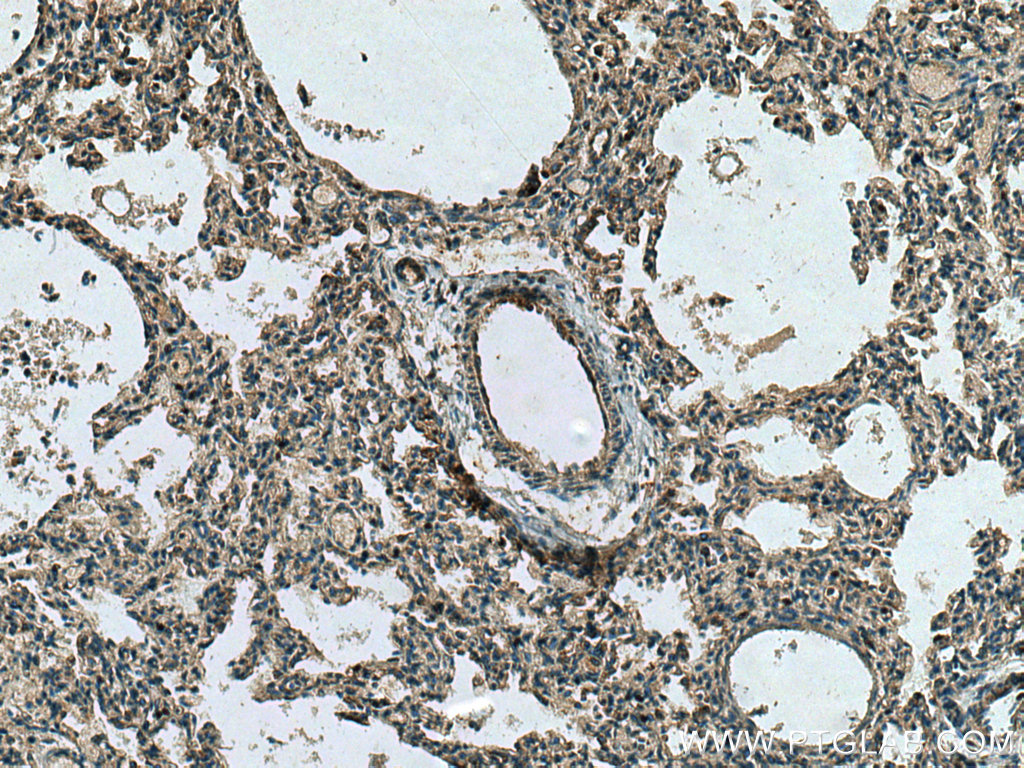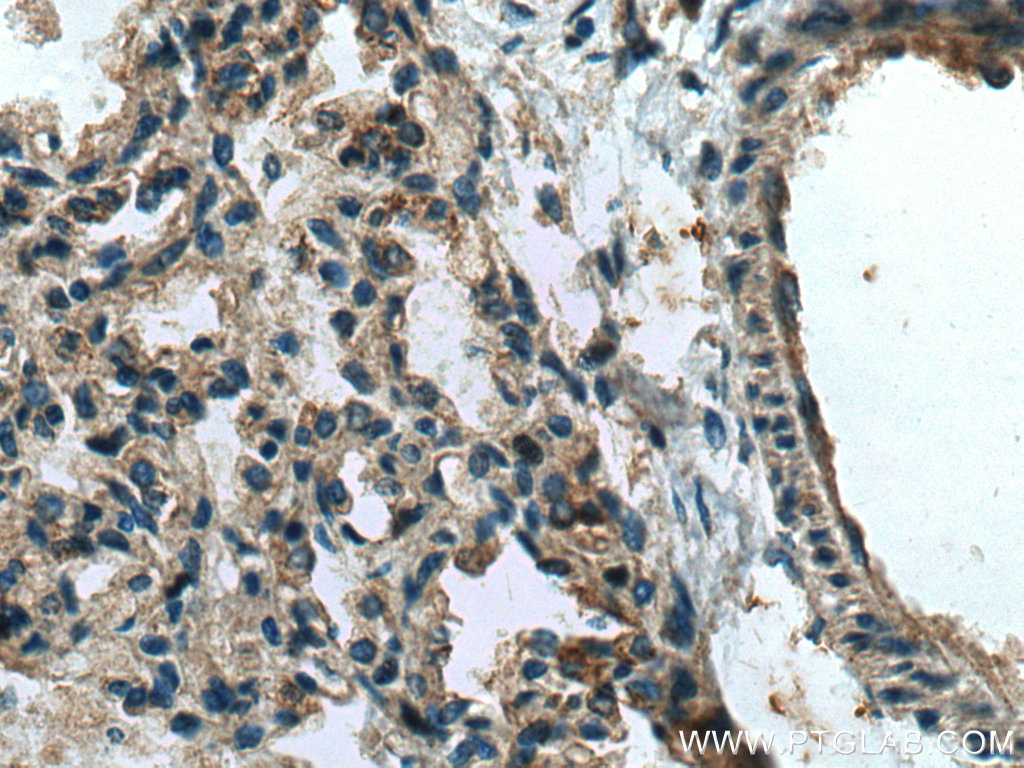验证数据展示
产品信息
10108-2-PBS targets CX3CL1 in WB, IHC, Indirect ELISA applications and shows reactivity with human samples.
| 经测试应用 | WB, IHC, Indirect ELISA Application Description |
| 经测试反应性 | human |
| 免疫原 |
CatNo: Ag0161 Product name: Recombinant human CX3CL1 protein Source: e coli.-derived, PGEX-4T Tag: GST Domain: 90-245 aa of BC001163 Sequence: DRQAAALTRNGGTFEKQIGEVKPRTTPAAGGMDESVVLEPEATGESSSLEPTPSSQEAQRALGTSPELPTGVTGSSGTRLPPTPKAQDGGPVGTELFRVPPVSTAATWQSSAPHQPGPSLWAEAKTSEAPSTQDPSTQASTASSPAPEENAPSEGQ 种属同源性预测 |
| 宿主/亚型 | Rabbit / IgG |
| 抗体类别 | Polyclonal |
| 产品类型 | Antibody |
| 全称 | chemokine (C-X3-C motif) ligand 1 |
| 别名 | C-X3-C motif chemokine 1, CX3C membrane-anchored chemokine, C3Xkine, C X3 C motif chemokine 1, ABCD 3 |
| 计算分子量 | 42 kDa |
| 观测分子量 | 90-100 kDa |
| GenBank蛋白编号 | BC001163 |
| 基因名称 | CX3CL1 |
| Gene ID (NCBI) | 6376 |
| RRID | AB_2087154 |
| 偶联类型 | Unconjugated |
| 形式 | Liquid |
| 纯化方式 | Antigen affinity purification |
| UNIPROT ID | P78423 |
| 储存缓冲液 | PBS only, pH 7.3. |
| 储存条件 | Store at -80°C. The product is shipped with ice packs. Upon receipt, store it immediately at -80°C |
背景介绍
Chemokines direct the trafficking of white blood cells in immune surveillance, playing a key role in inflammatory and infectious diseases such as AIDS. The human CX3C chemokine carries the chemokine domain on top of an extended mucin-like stalk. CX3CL1 is synthesized as a 50-75 kDa precursor and undergoes glycosylation to yield two mature forms: a 100 kDa cell membrane bound form and an 85 kDa soluble form which is released from the cell surface. The soluble CX3C chemokine has potent chemoattractant activity for T cells and monocytes, and the cell-surface-bound protein, which is induced by primary proinflammatory signals in activated primary endothelial cells, promotes strong adhesion of those leukocytes.

